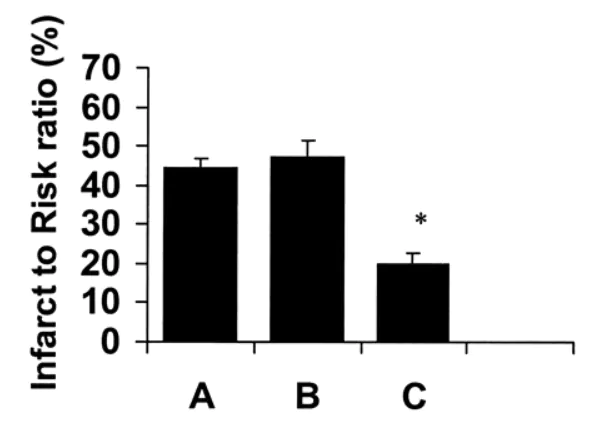The Incretin Effect of GLP-1
The Incretin Effect of GLP-1
The incretin effect refers to the enhancement of insulin secretion in response to oral nutrient intake compared to intravenous nutrient delivery. GLP-1 (glucagon-like peptide-1) is one of the primary incretin hormones involved in this process.
- GLP-1 and GIP (glucose-dependent insulinotropic peptide) are the two main incretin hormones secreted from the gastrointestinal tract in response to food intake.
- The incretin effect is reduced in individuals with type 2 diabetes despite the preservation of GLP-1 activity.
- GLP-1 plays a crucial role in stimulating insulin release, suppressing glucagon secretion, and slowing down gastric emptying, collectively contributing to the incretin effect.
- Understanding and utilizing the incretin effect has led to the development of incretin-based therapies, such as GLP-1 receptor agonists like liraglutide, to improve glycemic control in people with type 2 diabetes.
- Differential effects of GLP-1 and GIP on gastric emptying, appetite, and insulin-glucose homeostasis have been observed, suggesting distinct roles for these incretin hormones.
Liraglutide GLP-1 and Beta Cell Protection
Liraglutide, a GLP-1 receptor agonist, has shown favorable effects in protecting beta cells and improving glycemic control.
According to one study, incretin-based medicines such as GLP-1 receptor agonists and DPP-IV inhibitors can ameliorate glycemic control and mitigate the progression of beta-cell dysfunction. Another research demonstrated that liraglutide, a human GLP-1 analogue, improves hyperglycemia along with increased beta-cell mass and insulin secretion.
One research supports the idea that liraglutide improves hyperglycemia concomitantly with increased beta-cell mass and insulin secretion. Liraglutide is considered a powerful treatment option for type 2 diabetes.
Furthermore, studies have shown that GLP-1 protects beta cells against cytokine-induced apoptosis. Liraglutide treatment has been found to protect islets against endoplasmic reticulum stress, which is involved in beta-cell dysfunction.
Overall, liraglutide, a GLP-1 receptor agonist, has shown promise in protecting beta cells and improving their function. It could be a valuable treatment option for individuals with type 2 diabetes.
Liraglutide GLP-1 and Appetite
Liraglutide, a GLP-1 receptor agonist, has been found to affect appetite and weight.
GLP-1 therapy in humans reduces food intake, appetite, and hunger while promoting fullness and satiety, ultimately leading to weight loss. Another study found that GLP-1 receptor agonists improve glycemic control and stimulate satiety, reducing food intake and body weight.
Another research indicates that liraglutide, a once-daily GLP-1 analogue, impacts appetite and energy intake in patients with type 2 diabetes after short-term treatment. Liraglutide is known to modulate appetite and body weight through its effect on the glucagon-like peptide 1 receptor.
Studies have shown that various GLP-1 drugs, including liraglutide, can lead to significant weight loss. These drugs work by reducing energy intake and overall appetite reduction.
Potential Cardiovascular Benefits of GLP-1
It has shown that GLP-1 receptor agonists reduce systolic blood pressure, with an average decrease of 2 to 6 mm Hg. One study demonstrated that GLP-1 has cardiovascular benefits on blood pressure, vascular endothelium, atherosclerosis progression, inflammation, myocardial ischemia, and heart failure.
Furthermore, research published on NCBI suggests that using GLP-1 receptor agonists is associated with a significant reduction in cardiovascular and all-cause mortalities. GLP-1 receptor agonists have also been linked to a reduction in the risk of heart failure and hospitalization.
Multiple clinical trials have demonstrated the cardiovascular safety and tolerability of GLP-1 receptor agonists while indicating their potential cardiovascular benefits. These benefits may include blood pressure reduction, weight loss, and improved blood lipids.

Size of damage in heart in control mice (A), mice given standard vasopressin therapy (B), and mice give GLP-1 (C).
Source: Diabetes Journal
Liraglutide GLP-1 and the Brain
Liraglutide has been studied for its potential effects on the brain and neuroprotection.
According to one research liraglutide has been shown to increase brain insulin signaling activity, leading to inhibition of GSK-3β through AKT-increased activity. Another study found that liraglutide significantly increased memory retention and neuron numbers in the hippocampus, suggesting potential memory-enhancing effects. Additionally, liraglutide has been found to reduce infarct size in the brain and improve neurologic deficits.
The ability of GLP-1 receptor agonists such as liraglutide to reduce food intake and body weight is mediated by the brain's GLP-1 receptors, as highlighted in a study published in the British Journal of Pharmacology. Research suggests that liraglutide may improve brain function, particularly in obese individuals.
Furthermore, research indicates that both peripheral and brain GLP-1 receptors play a role in mediating the effects of liraglutide. Liraglutide has also been found to restore impaired associative learning in individuals with obesity, as reported in a study published in Nature.
Eventually, trials suggest that liraglutide, a GLP-1 receptor agonist, may have neuroprotective properties, improve memory retention, reduce infarct size, regulate food intake, and potentially enhance brain function.

